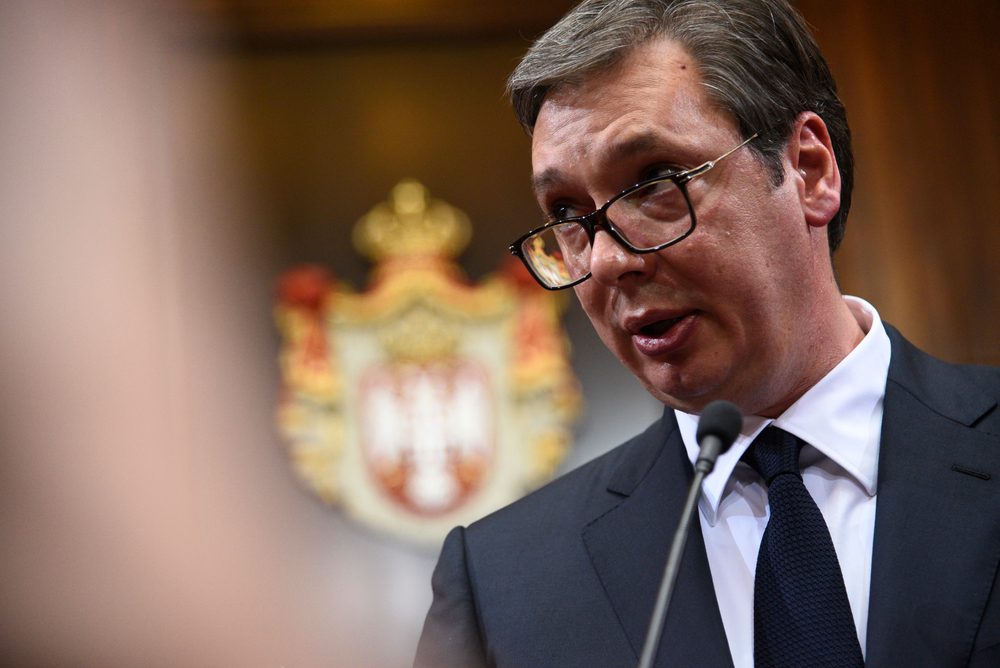
While the EU is setting the stage for full gas independence from Russia, Serbia has made a new deal with Moskow. Last Sunday, Serbian President Aleksandar Vučić agreed to a three-year contract during a phone call with Russian President Vladimir Putin, TASS reported.
Vučić—Putin’s closest ally in Europe—would not divulge the price to reporters, saying that “all details will be agreed with Gazprom,” and that it would be linked to the contract for oil. Serbia (a non-EU member) had a 10-year contract with Russia already, which ended on May 31st. Vučić added that an expansion of gas storage space in his country was discussed as well, and that Putin would be on hand should any other matters need further discussion.
In 2008, Serbia allowed its gas and oil sectors to be led by Russian companies. Gazprom Neft and Gazprom hold a majority stake in the country’s sole oil company while Gazprom is majority shareholder in its sole gas storage facility.
While Serbia has expressed a wish to eventually join the European Union, it has been upbraided for not following the Western world’s lead in condemning Russia for its invasion of Ukraine. While the country supports Ukraine’s territorial integrity and is ready to offer humanitarian assistance, it has refrained from imposing sanctions.
Pursuing its own policy is the country’s primary concern, Vucic went on to say. To that end, he has announced that Belgrade will suspend army and police drills with all foreign partners. But it is not only on the Russia-Ukraine debacle that opinion diverges between the EU and Serbia. The Republic of Kosovo (home to a Serb minority), which declared its independence from Serbia in 2008, but is still not accepted as such by the latter, remains a thorny issue. Vučić noted:
We are living under pressure every day. It is not easy to pursue an independent and sovereign policy. As long as we can stand it, we will conduct an independent and sovereign policy. It is difficult to say but it was difficult to say 90 days ago. But even after 90 days, we still have our position we took on the first day after the beginning of the conflict in Ukraine. This pressure will concern Kosovo, not to leave it as a precedent … It is important for them to make Serbia sign an agreement with the Albanians as soon as possible, first of all, on the recognition of Kosovo’s independence, because it would be a solution to all their problems and would strengthen the West’s position on Russia.
Relations between Albania and Serbia (which already share a troubled history) have been strained since 2014. That year, both countries’ prime ministers agreed to a historic meeting. During Albanian Prime Minister Edi Rama’s visit to Serbia (the first by an Albanian Prime Minister in over 70 years), he however told Vučić that Kosovo’s independence was “undeniable” and “must be respected.” Vučić reacted badly to the statement, accusing his counterpart of a “provocation.” With both Rama and Vucic still the incumbents, rapprochement remains unlikely for now.
